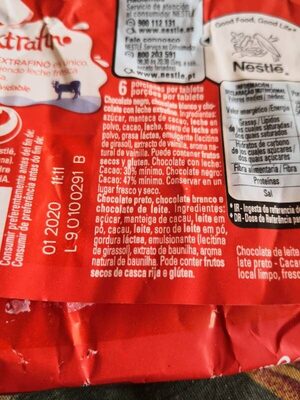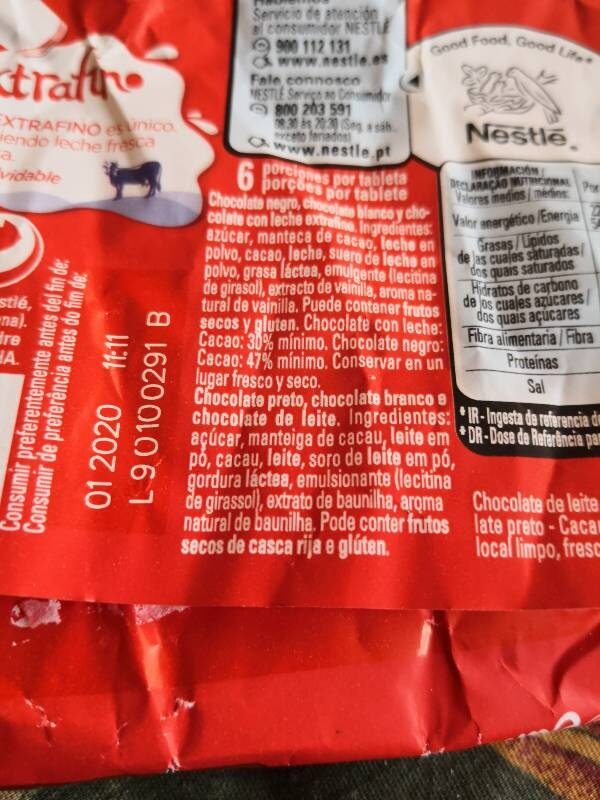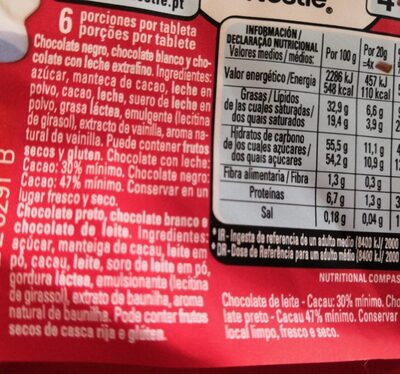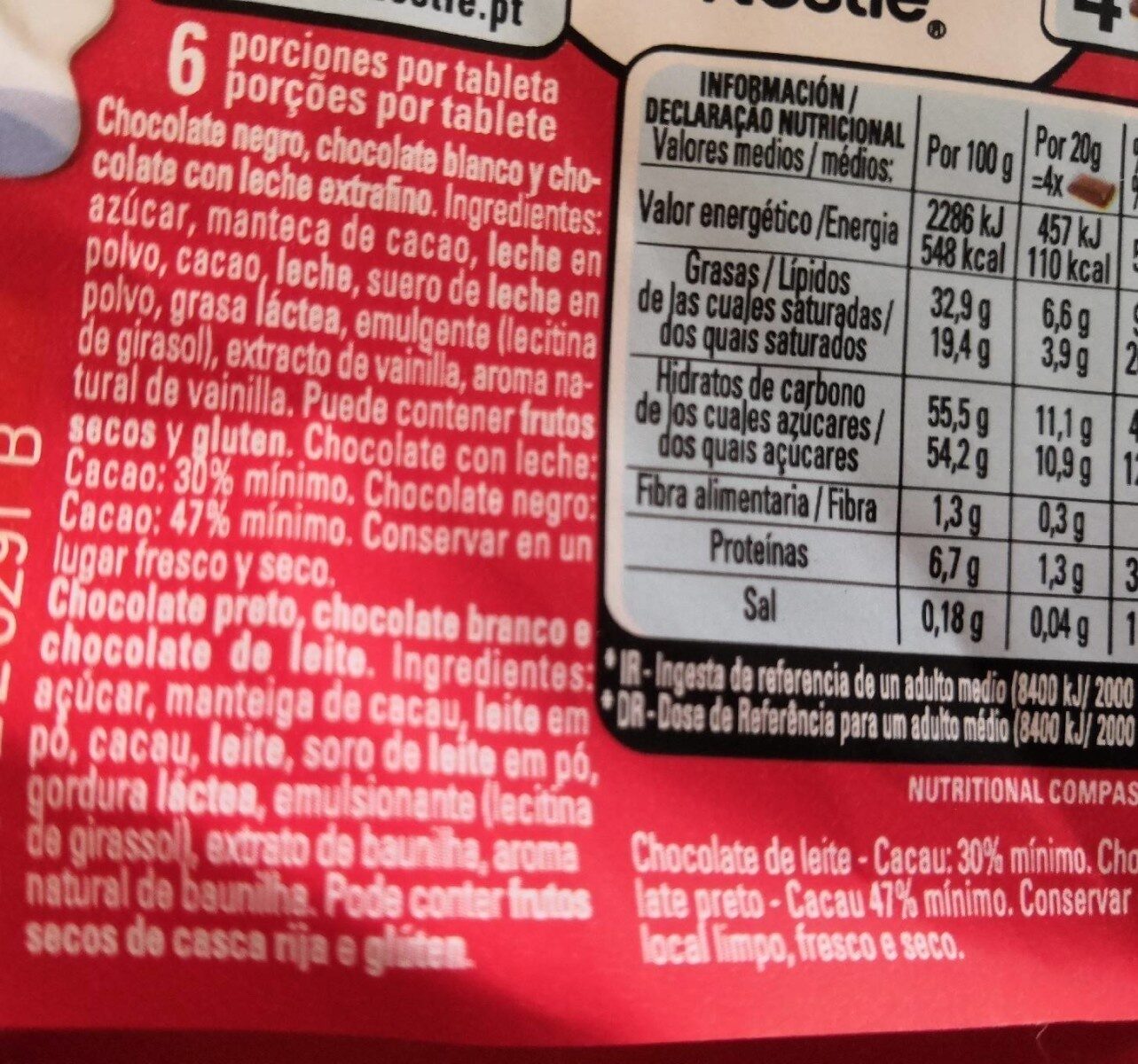Chocolate extrafino tres chocolates - Nestlé - 120g
Aquesta pàgina del producte no està completa. Podeu ajudar a completar-la editant-la i afegint-hi més dades a partir de les fotos ja disponibles, o fent-ne més amb l'aplicació de androide o iPhone / iPad. Gràcies!
×
Codi de barres: 7613033490231 (EAN / EAN-13)
Quantitat: 120g
Marques: Nestlé
Categories: Aliments i begudes amb base vegetal, Aliments amb base vegetal, Snacks, Aperitius dolços, Cacau i derivats, Fruits secs i derivats, Fruits secs, Xocolata, Fuita seca pelada, en:Botanas, en:Snacks dulces, en:chocolates-negros, en:chocolates-negros-extra-finos
Etiquetes, certificacions, premis:
Agricultura Sostenible, Certificat UTZ, en:Certificado utz
Països on es va vendre: Espanya
Matching with your preferences
Entorn
Empaquetament
Transport
Etiquetes
Report a problem
Fonts de dades
Producte afegit per elcoco
Última modificació de la pàgina del producte per teolemon.
La pàgina del producte, també editada per ecoscore-impact-estimator, elcoco.3e7e663d5d7199bc04791c8a3e9d53d1, grumpf, halal-app-chakib, inf, kiliweb, musarana, openfoodfacts-contributors, roboto-app, yuka.RjRjeEs2NHRsTU1zZ3ZBUjhRUGwvdWhxKzdDbmQwV0tNOUVoSVE9PQ, yuka.ZExBQk5iOC8vYVVVdWYwMzlBdlZ4ZlZjeVphUEJUeWNPL1VVSWc9PQ, yuka.sY2b0xO6T85zoF3NwEKvlnBVaILikjTHDCbguVza7_6ycqH3S_Ej2YrbNqs.











